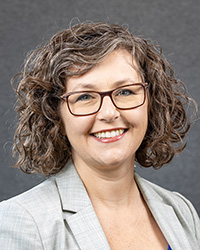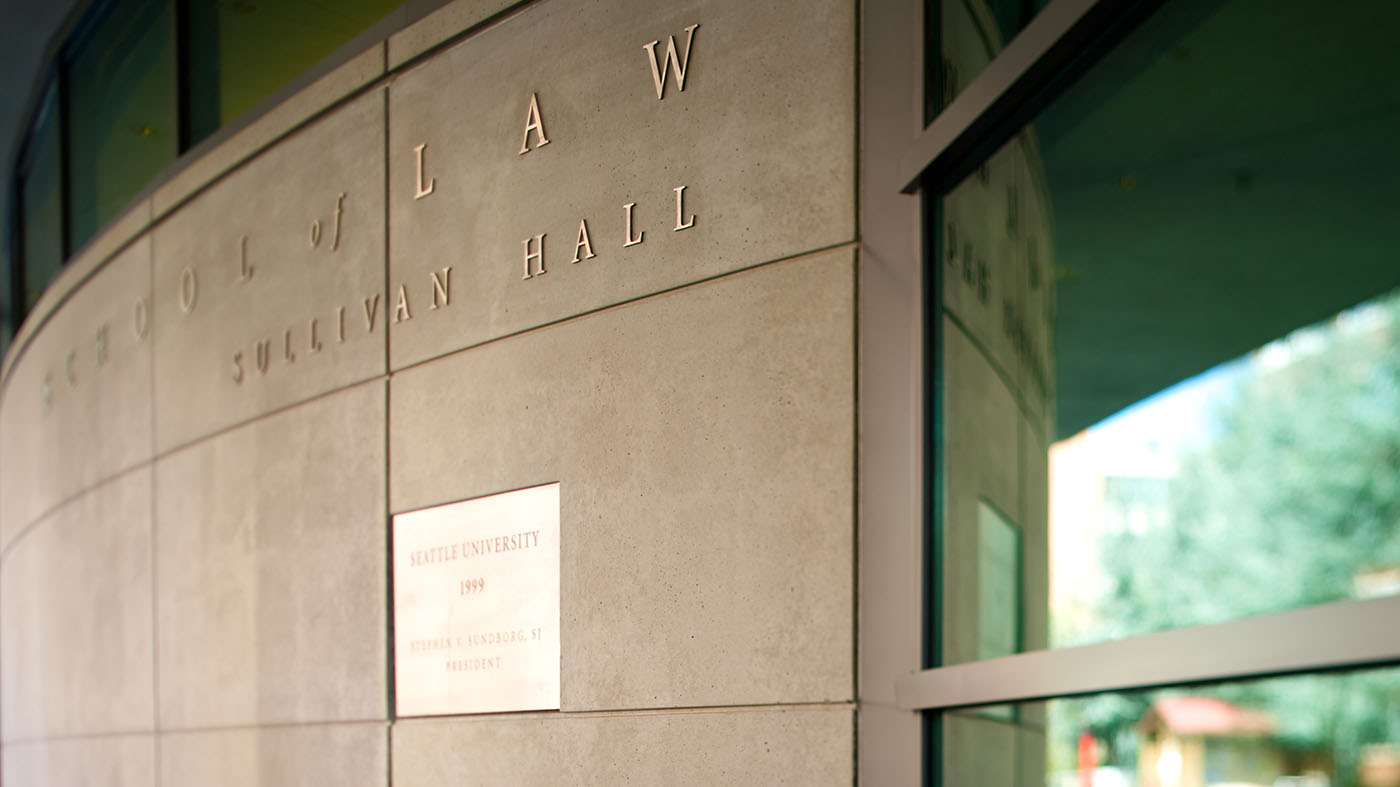Seattle University School of Law has tapped Kathryn Naegeli Boling to lead the law school’s esteemed Legal Writing Program, regarded as one of the top such programs in the nation.

Currently the program’s associate director and a visiting assistant professor of lawyering skills, Boling will become director and a tenure-track assistant professor of law beginning this summer. She will replace the program’s current director, Mimi Samuel, as she steps down in preparation for retirement.
“It is such an honor and privilege to take the director reins for Seattle U Law’s beloved legal writing program. What a legacy we carry,” Boling said. “I am incredibly excited to lead us into a bright future of educating students in the skills they will need to be excellent legal counselors and advocates.”
“Katy already, within minutes of accepting the role, has started generating great ideas on how best to strengthen our Legal Writing Program and enhance its national profile,” said Dean Anthony E. Varona. “The future of our Legal Writing Program is bright, thanks to Katy and Mimi.”
In her two years as associate director of the program, Boling, a 2007 graduate of the law school, has introduced new methods of teaching reflection and professionalism. She has also made it her mission to assign at least one social justice-related memo each year in the first-year Legal Writing, Skills, and Values course.
Boling has ideas for the program’s future, especially when it comes to preparing students for a more technologically-entrenched world. She plans to evolve the curriculum to incorporate information on artificial intelligence, helping students understand ways that artificial intelligence can both help and hurt their work as lawyers. Lessons may include instruction on using AI to augment text editing as well as warnings about the dangers AI poses for legal research (for example, the ways in which AI can cite false cases).
“In this new age of increasingly convenient but still experimental technologies like generative AI, we have a critical role to play,” Boling said. “We can and should facilitate our students’ learning of these technologies and explore appropriate uses of them in legal practice to enhance efficiency and improve communication. In the process, our outstanding faculty will model the unique blend of skepticism, curiosity, and judgment that characterize the best lawyers and help students come away with a sense of responsibility about their technology choices.”
“We are thrilled to have her taking the reins,” said Samuel, who is also an associate professor of lawyering skills. “Katy is a shining example of how well we set graduates up for success in the law, and we are delighted to have her back in this leadership role to lead the program forward.”
Samuel noted that she first asked Boling to serve in the associate director role “because of her excellent teaching and big-picture approach to student learning.”
“In that capacity, she has provided both administrative support and a collaborative space for the team to work through challenges together,” Samuel said. “She is beloved by her students, who have already nominated her for several awards, including the annual Outstanding Faculty Award.”
Before embarking upon a legal career, Boling graduated from Stanford University in 2002 with a B.A. in cultural and social anthropology, in which she focused on globalization and law. As part of that program of study, Boling spent a summer in Harare, Zimbabwe, researching and analyzing Zimbabwean labor law.
In her time at Seattle U Law, Boling placed first in the James E. Bond Moot Court Competition and went on to represent Seattle U Law in several other regional and national-level competitions, including the American Bar Association National Appellate Advocacy Competition (NAAC) and the National Asian Pacific American Bar Association (NAPABA) Thomas Tang Moot Court Competition, earning several awards for her briefs and oralism. She was also a student fellow for the Center on Corporations, Law & Society (now known as The Berle Center) and a student in the Community Development & Entrepreneurship Clinic. Boling graduated summa cum laude, earning the Dean’s Medal.
During her law school summers, Boling clerked at the Washington Court of Appeals and at the U.S. Attorney’s Office for the Western District of Washington, where she briefed and argued her first “real” appeal at the Ninth Circuit in 2006. After graduation, she clerked for Judge David Armstrong at the Washington Court of Appeals, Division II.
In 2009, Boling joined the U.S. Department of Justice, Civil Division, through the DOJ Honors Program. In this role, Boling litigated several large environmental tort cases on behalf of the government, appearing in hearings and depositions all around the country. She then returned to Seattle to work at the firm of Betts, Patterson & Mines, P.S. for almost six years, primarily in the insurance coverage group, eventually becoming a director.
Boling’s legal writing scholarship has garnered national attention, as she has presented at several conferences on innovative approaches to teaching. She focuses on conventions regarding quotation and plagiarism in the legal profession. She will present her first major paper this summer at the Legal Writing Institute Biennial Conference in Indianapolis, Indiana.

